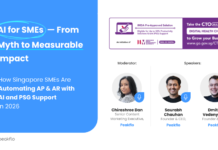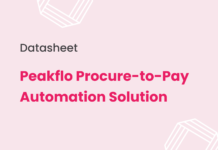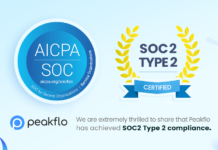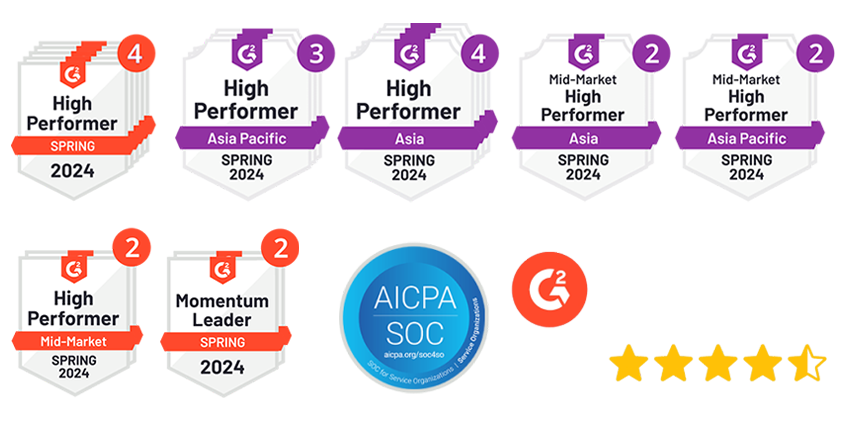As we move further into 2024, AI investment remains a top priority for CFOs across the industry. According to a recent survey by Grant Thornton, 61% of CFOs reported that their companies will invest in AI this year. This investment aims to enhance customer experience, improve decision-making, and automate routine tasks and processes.
Furthermore, according to PR Newswire, CFOs recognize AI’s potential to reduce costs, boost productivity, and enhance efficiency. The primary AI investment areas include AP automation, procurement, third-party risk management, and contract management. Additionally, they plan to invest in GenAI solutions to improve fraud detection, optimize workflow processes, evaluate suppliers, and develop contracts.
Major AI Investments by Leading Enterprises
Tech giants like Amazon, Microsoft, Meta, and Google lead the charge in AI investments, collectively pouring billions into AI technologies and infrastructure.
- Amazon has recently concluded a $4 billion investment in Anthropic.
- Microsoft plans to invest $1.5 billion in G42, an AI firm based in the UAE.
- Microsoft’s commitment to AI is further underscored by its $13 billion investment in OpenAI, which began with a $1 billion commitment in 2019.
- Google has also agreed to invest up to $2 billion in Anthropic.
- Morgan Stanley invested in OpenAI to enhance services for its financial advisors.
In the first quarter of 2024 alone, Microsoft, Meta, and Alphabet have spent upwards of $32 billion on data centers and other technology required for AI development. These investments highlight the strategic importance these companies place on AI, aiming to strengthen their positions in the technology landscape.
The Future Impact of AI Across Different Industry
AI is predicted to significantly impact economic growth, adding $6 trillion to the Gross Value Added (GVA) of the top three industries by 2035.
According to Accenture and Exploding Topics, a survey comparing 16 industries in both a baseline and AI scenario by 2035 showed growth in the information and communication, manufacturing, and financial services sectors.
The GVA growth rates for these sectors were 4.8%, 4.4%, and 4.3%, respectively, highlighting the transformative potential of AI in elevating business for economic growth, accounting for an additional $6 trillion in GVA for these sectors alone by 2035.
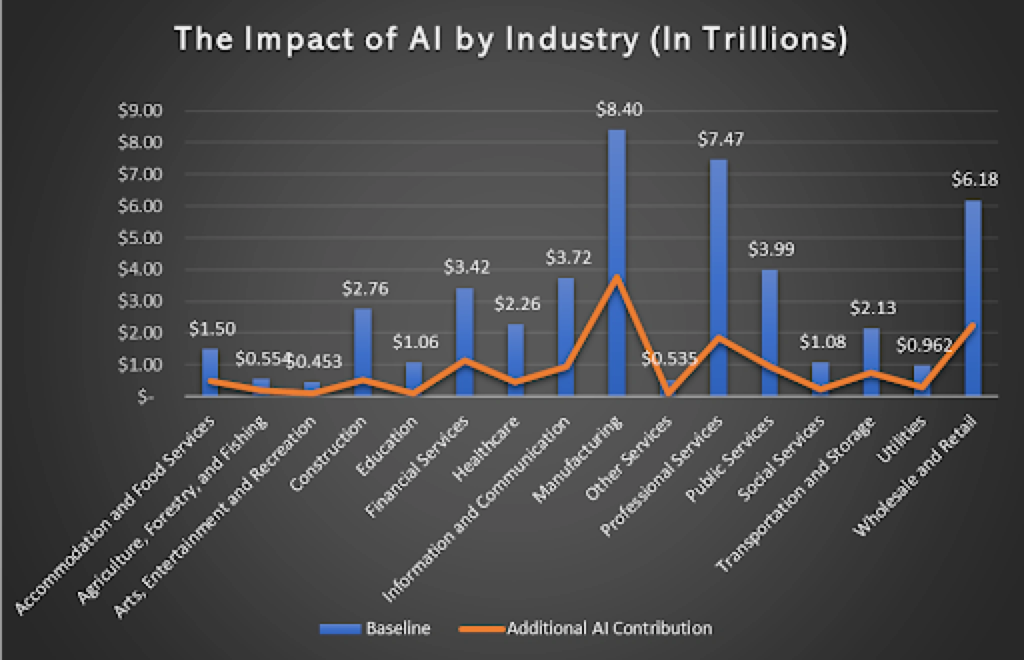
A Roadmap for AI Investment: Should You Build or Buy?
For many organizations, the decision to build or buy AI solutions is influenced by cost considerations.
Custom AI development can be quite expensive, with total estimated costs ranging from $600,000 to $1,500,000 to build an AI model. The ongoing costs of maintaining such a model can average $585,000 annually, bringing the total cost of ownership over seven years to approximately $4,696,500.
While large enterprises may have the resources to invest in custom AI solutions, many small and medium-sized enterprises (SMEs) and mid-market companies opt for third-party AI solutions. These solutions are more cost-effective and offer a faster implementation timeline.
Third-party solutions cost $20,000 on average annually and provide several benefits, including affordability, scalability, and quick implementation, allowing companies to access advanced AI features without the hefty price tag of custom development.
The Way Forward
As companies worldwide continue to invest heavily in AI, it is clear that AI technologies are becoming integral to modern business strategies. From enhancing customer experience to automating routine tasks and improving decision-making, AI offers significant benefits that can drive growth and efficiency across industries.
The wave of AI investment in 2024 underscores the technology’s transformative potential. Whether through large-scale investments by tech giants or the adoption of cost-effective third-party solutions by SMEs, AI is poised to revolutionize business operations.
As companies chart their AI implementation roadmaps, a critical decision lies ahead: to build or buy?







